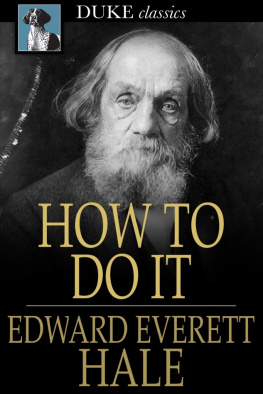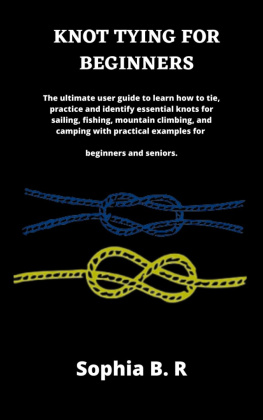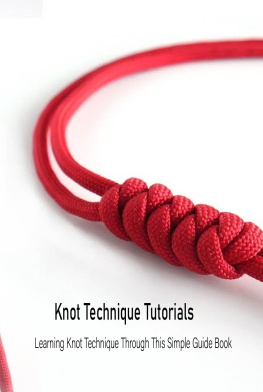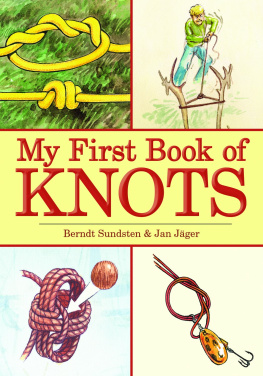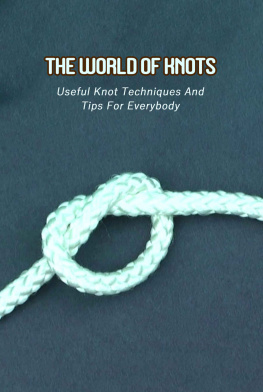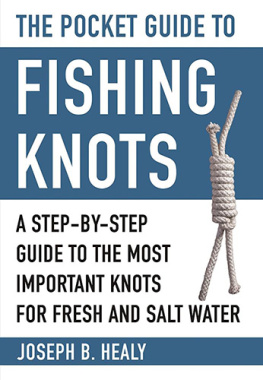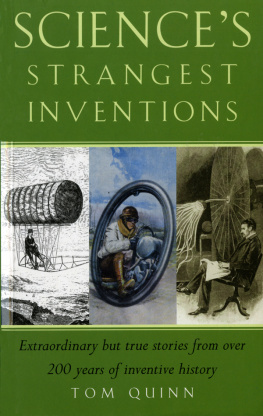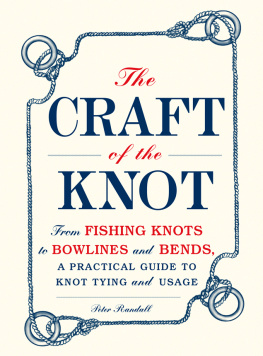Edward Everett Hale - How to Do It
Here you can read online Edward Everett Hale - How to Do It full text of the book (entire story) in english for free. Download pdf and epub, get meaning, cover and reviews about this ebook. publisher: Duke Classics, genre: Art. Description of the work, (preface) as well as reviews are available. Best literature library LitArk.com created for fans of good reading and offers a wide selection of genres:
Romance novel
Science fiction
Adventure
Detective
Science
History
Home and family
Prose
Art
Politics
Computer
Non-fiction
Religion
Business
Children
Humor
Choose a favorite category and find really read worthwhile books. Enjoy immersion in the world of imagination, feel the emotions of the characters or learn something new for yourself, make an fascinating discovery.
- Book:How to Do It
- Author:
- Publisher:Duke Classics
- Genre:
- Rating:5 / 5
- Favourites:Add to favourites
- Your mark:
- 100
- 1
- 2
- 3
- 4
- 5
How to Do It: summary, description and annotation
We offer to read an annotation, description, summary or preface (depends on what the author of the book "How to Do It" wrote himself). If you haven't found the necessary information about the book — write in the comments, we will try to find it.
Nothing comes amiss in the great business of preparation, if it has been thoroughly well learned. And the strangest things come of use, too, at the strangest times. A sailor teaches you to tie a knot when you are on a fishing party, and you tie that knot the next time when you are patching up the Emperor of Russias carriage for him, in a valley in the Ural Mountains. But getting ready does not mean the piling in of a heap of accidental accomplishments. It means sedulously examining the coming duty or pleasure, imagining it even in its details, decreeing the utmost punctuality so far as you are concerned, and thus entering upon them as a knight armed from head to foot.
How to Do It — read online for free the complete book (whole text) full work
Below is the text of the book, divided by pages. System saving the place of the last page read, allows you to conveniently read the book "How to Do It" online for free, without having to search again every time where you left off. Put a bookmark, and you can go to the page where you finished reading at any time.
Font size:
Interval:
Bookmark:

From an 1870 edition
ISBN 978-1-62011-396-7
Duke Classics
2012 Duke Classics and its licensors. All rights reserved.
While every effort has been used to ensure the accuracy and reliability of the information contained in this edition, Duke Classics does not assume liability or responsibility for any errors or omissions in this book. Duke Classics does not accept responsibility for loss suffered as a result of reliance upon the accuracy or currency of information contained in this book.
The papers which are here collected enter in some detail into the successand failure of a large number of young people of my acquaintance, who arehere named as
Alice Faulconbridge,
Bob Edmeston,
Clara,
Clem Waters,
Edward Holiday,
Ellen Liston,
Emma Fortinbras,
Enoch Putnam, brother of Horace,
Esther,
Fanchon,
Fanny, cousin to Hatty Fielding
Florence,
Frank,
George Ferguson (Asaph Ferguson's brother),
Hatty Fielding,
Herbert,
Horace Putnam,
Horace Felltham (a very different person),
Jane Smith,
Jo Gresham,
Laura Walter,
Maud Ingletree,
Oliver Ferguson, brother to Asaph and George,
Pauline,
Rachel,
Robert,
Sarah Clavers,
Stephen,
Sybil,
Theodora,
Tom Rising,
Walter,
William Hackmatack,
William Withers.
It may be observed that there are thirty-four of them. They make up avery nice set, or would do so if they belonged together. But, in truth,they live in many regions, not to say countries. None of them are toobright or too stupid, only one of them is really selfish, all but one ortwo are thoroughly sorry for their faults when they commit them, and allof them who are good for anything think of themselves very little. Thereare a few who are approved members of the Harry Wadsworth Club. That meansthat they "look up and not down," they "look forward and not back," they"look out and not in," and they "lend a hand." These papers were firstpublished, much as they are now collected, in the magazine "Our YoungFolks," and in that admirable weekly paper "The Youth's Companion," whichis held in grateful remembrance by a generation now tottering off thestage, and welcomed, as I see, with equal interest by the grandchildren asthey totter on. From time to time, therefore, as the different series havegone on, I have received pleasant notes from other young people, whoseacquaintance I have thus made with real pleasure, who have asked moreexplanation as to the points involved. I have thus been told that myfriend, Mr. Henry Ward Beecher, is not governed by all my rules for youngpeople's composition, and that Miss Throckmorton, the governess, does notbelieve Archbishop Whately is infallible. I have once and again been askedhow I made the acquaintance of such a nice set of children. And I can wellbelieve that many of my young correspondents would in that matter be gladto be as fortunate as I.
Perhaps, then, I shall do something to make the little book moreintelligible, and to connect its parts, if in this introduction I tell ofthe one occasion when the dramatis personae met each other; and in orderto that, if I tell how they all met me.
First of all, then, my dear young friends, I began active life, as soon asI had left college, as I can well wish all of you might do. I began inkeeping school. Not that I want to have any of you do this long, unless anevident fitness or "manifest destiny" appear so to order. But you may besure that, for a year or two of the start of life, there is nothing thatwill teach you your own ignorance so well as having to teach children thefew things you know, and to answer, as best you can, their questions onall grounds. There was poor Jane, on the first day of that charming visitat the Penroses, who was betrayed by the simplicity and cordiality of thedinner-tablewhere she was the youngest of ten or twelve strangersintotaking a protective lead of all the conversation, till at the very last Iheard her explaining to dear Mr. Tom Coram himself,a gentleman who hadlived in Java ten years,that coffee-berries were red when they wereripe. I was sadly mortified for my poor Jane as Tom's eyes twinkled. Shewould never have got into that rattletrap way of talking if she had keptschool for two years. Here, again, is a capital letter from OliverFerguson, Asaph's younger brother, describing his life on the Island atParis all through the siege. I should have sent it yesterday to Mr.Osgood, who would be delighted to print it in the Atlantic Monthly, butthat the spelling is disgraceful. Mr. Osgood and Mr. Howells would thinkOliver a fool before they had read down the first page. "L-i-n, lin,n-e-n, nen, linen." Think of that! Oliver would never have spelled "linen"like that if he had been two years a teacher. You can go through fouryears at Harvard College spelling so, but you cannot go through two yearsas a schoolmaster.
Well, I say I was fortunate enough to spend two years as an assistantschoolmaster at the old Boston Latin School,the oldest institution oflearning, as we are fond of saying, in the United States. And there firstI made my manhood's acquaintance with boys.
"Do you think," said dear Dr. Malone to me one day, "that my son Robertwill be too young to enter college next August?" "How old will he be?"said I, and I was told. Then as Robert was at that moment just six monthsyounger than I, who had already graduated, I said wisely, that I thoughthe would do, and Dr. Malone chuckled, I doubt not, as I did certainly, atthe gravity of my answer. A nice set of boys I had. I had above me two ofthe most loyal and honorable of gentlemen, who screened me from allreproof for my blunders. My discipline was not of the best, but mypurposes were; and I and the boys got along admirably.
It was the old schoolhouse. I believe I shall explain in another place,in this volume, that it stood where Parker's Hotel stands, and my roomoccupied the spot in space where you, Florence, and you, Theodora, dinedwith your aunt Dorcas last Wednesday before you took the cars forAndover,the ladies' dining-room looking on what was then Cook's Court,and is now Chapman Place. Who Cook was I know not. The "Province Street"of to-day was then much more fitly called "Governor's Alley." For boysdo not know that that minstrel-saloon so long known as "Ordway's," justnow changed into Sargent's Hotel, was for a century, more or less, theofficial residence of the Governor of Massachusetts. It was the"Province House."
On the top of it, for a weathercock, was the large mechanical brazenIndian, who, whenever he heard the Old South clock strike twelve, shot offhis brazen arrow. The little boys used to hope to see this. But just astwelve came was the bustle of dismissal, and I have never seen one who didsee him, though for myself I know he did as was said, and have neverquestioned it. That opportunity, however, was up stairs, in Mr. Dixwell'sroom. In my room, in the basement, we had no such opportunity.
The glory of our room was that it was supposed, rightly or not, that apart of it was included in the old schoolhouse which was there before theRevolution. There were old men still living who remembered the troubloustimes, the times that stirred boys' souls, as the struggle forindependence began. I have myself talked with Jonathan Darby Robbins, whowas himself one of the committee who waited on the British general todemand that their coasting should not be obstructed. There is a readingpiece about it in one of the school-books. This general was not Gage, ashe is said to be in the histories, but General Haldimand; and hisquarters were at the house which stood nearly where Franklin's statuestands now, just below King's Chapel. His servant had put ashes on thecoast which the boys had made, on the sidewalk which passes the Chapel asyou go down School Street. When the boys remonstrated, the servantridiculed them,he was not going to mind a gang of rebel boys. So theboys, who were much of their fathers' minds, appointed a committee, ofwhom my friend was one, to wait on General Haldimand himself. They calledon him, and they told him that coasting was one of their inalienablerights and that he must not take it away. The General knew too well thatthe people of the town must not be irritated to take up his servant'squarrel, and he told the boys that their coast should not be interferedwith. So they carried their point. The story-book says that he clasped hishands and said, "Heavens! Liberty is in the very air! Even these boysspeak of their rights as do their patriot sires!" But of this Mr. Robbinstold me nothing, and as Haldimand was a Hessian, of no great enthusiasmfor liberty, I do not, for my part, believe it.
Font size:
Interval:
Bookmark:
Similar books «How to Do It»
Look at similar books to How to Do It. We have selected literature similar in name and meaning in the hope of providing readers with more options to find new, interesting, not yet read works.
Discussion, reviews of the book How to Do It and just readers' own opinions. Leave your comments, write what you think about the work, its meaning or the main characters. Specify what exactly you liked and what you didn't like, and why you think so.

